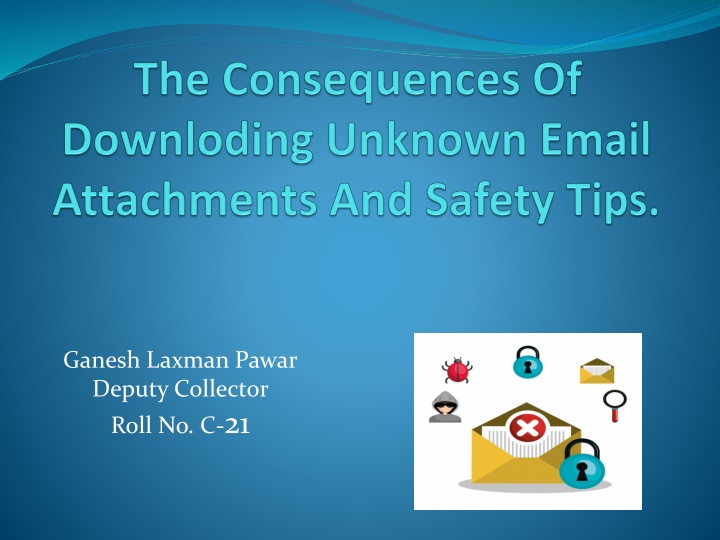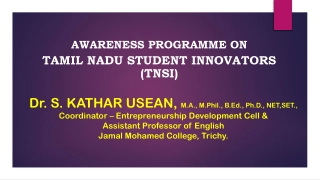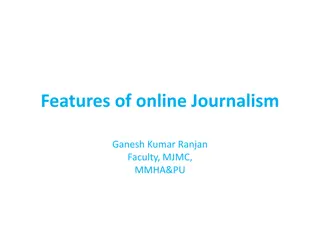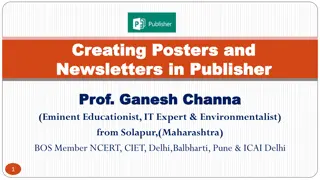
Beware of Email Attachments: Risks and Safety Tips
Learn about the dangers of email attachments, such as viruses, web bugs, and ransomware. Understand the consequences of downloading unknown attachments and discover safety tips to protect your data and privacy online.
Download Presentation

Please find below an Image/Link to download the presentation.
The content on the website is provided AS IS for your information and personal use only. It may not be sold, licensed, or shared on other websites without obtaining consent from the author. If you encounter any issues during the download, it is possible that the publisher has removed the file from their server.
You are allowed to download the files provided on this website for personal or commercial use, subject to the condition that they are used lawfully. All files are the property of their respective owners.
The content on the website is provided AS IS for your information and personal use only. It may not be sold, licensed, or shared on other websites without obtaining consent from the author.
E N D
Presentation Transcript
Ganesh Laxman Pawar Deputy Collector Roll No. C-21
INTRODUCTION Email communication in the last decades. It just takes seconds to make appointments, to send files or to communicate anything, whether it is personal or business related. became one of the most used means of But it also only takes those few seconds to cause a lot of damage. Most computer viruses are spread via email attachments.
Why can email attachments be dangerous? Email is easily circulated Forwarding email is so simple that viruses can quickly infect many machines. Most viruses don't even require users to forward the email they scan a users' computer for email addresses and automatically send the infected message to all of theaddresses they find. Email programs try to address all users' needs Almost any type of file can be attached to an email message, so attackers have more freedom with the types of viruses theycan send. Email programs offer many "user-friendly" features Some email programs have the option to automatically download email attachments.
THE CONSEQUENCES OF DOWNLODING UNKNOWN EMAIL ATTACHMENTS Web Bugs- Web bugs are invisible icons, that detect when a certain email address is active so that theycan continue toclog your mailboxes. Corrupt Your Hard Drive- Documents, voicemails, and PDFs are designed in such a way that they can launch the attack on the victim s computer. Keep Your Data Hostage- This type of virus is highly harmful to individuals and organizations. These viruses keep your data hostage and demand a ransom in return for your data. According to the study by Datto, ransomwarecauses businesses $75 billion peryear.
Spy On Your Activities & Share Your Data- Each virus serves a specific purpose such as writing code on your hard drive, which turns your computer into an agent that spys on your activities and sends data toexternal locations. Spyware tends tosteal yourpersonal information. Steal Personal Information- Opening email attachments from unknown sources can allow the sender to access your passwords, bank information, and other critical stuff on your computer. Then they can steal your identityoryour moneyor in worstcases, yourvaluabledata. Trojan Horse- Tojan horse is harmful. If you witness unexpected changes to your computer settings and unusual activity even when your computer is idle, then thesearestrong indicationsof Trojan.
SAFETY TIPS Be aware of unsolicited attachments, even from people you know-Just because an email message looks like it came from your mom, grandma, or boss doesn't mean that it did. Many viruses can "spoof" the return address, making it look like the message came from someone else. Use an anti-virus scanner Install software on your computer yourself or with your MSP provider that will safeguard you against the latest malware or virus attack. Save and scan any attachments before opening them
Stop automatic downloads Dont allow your email or computer to automatically download attachments. You can control this setting yourself and reserve the right to choose whether or not you want to download information that is being sent to you. Type in correct URL directly Don t click financial links in emails. Instead, type the correct URL into your computer browser yourself and go directly to the genuine website. This should be the case for important transactions such as banking or any reputable company that is asking you to open or download an attachment. Delete when you are in doubt It is better to delete an email and attachment that you are unsure of then to inadvertently open it.






















